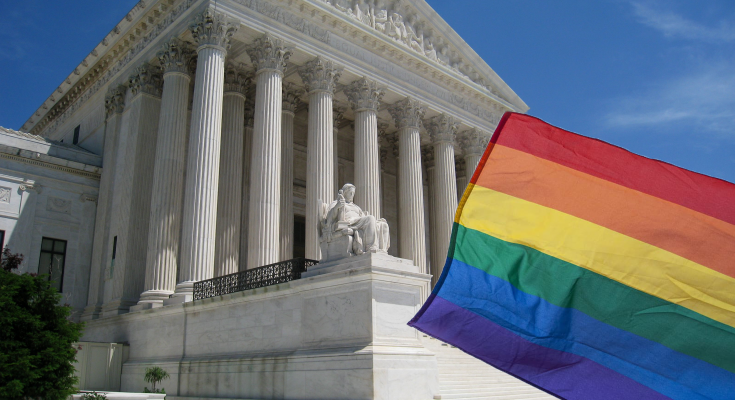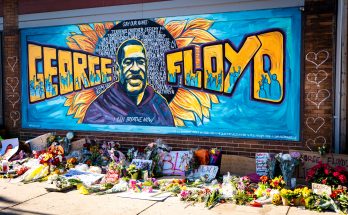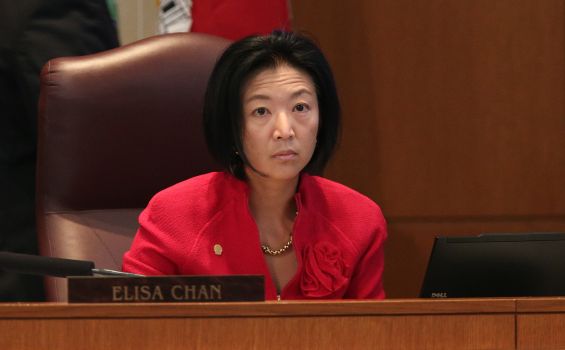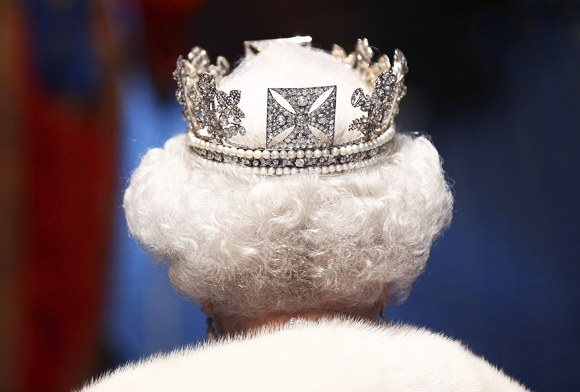After a challenging start to 2020, and threats to the reversal of LGBT rights, the Supreme Court delivers a win to our community.
Poodles, today the US Supreme Court made a landmark ruling: employers cannot discriminate against a person because of their sexual orientation or gender expression. In an age where same-sex marriage has been the law of the land since 2015, we tend to forget that the fight for our rights and equality is not over.
The monumental decision, penned by conservative justice Neil Gorsuch, (GASP! Appointed by the Cheeto-in-Chief? We were stunned) says this:
An employer who fires an individual for being homosexual or transgender fires that person for traits or actions it would not have questioned in members of a different sex. Sex plays a necessary and undisguisable role in the decision, exactly what Title VII forbids.
. . .
Only the written word is the law, and all persons are entitled to its benefit.
—17-1618 Bostock v. Clayton County (06/15/2020), Supreme Court of the United States
Some in the transgender community are already asking what this means for them. Can this decision be used to further advance their rights and protections? Only time will tell. But, this clearly tells us that employers must treat LGBT people (no word on the Q+) the same way they treat their straight, cisgender employees.
One thing we did note was the language used to describe Aimee Stephes’ case against her employer.
Aimee Stephens worked at R. G. & G. R. Harris Funeral Homes in Garden City, Michigan. When she got the job, Ms. Stephens presented as a male. But two years into her service with the company, she began treatment for despair and loneliness. Ultimately, clinicians diagnosed her with gender dysphoria and recommended that she begin living as a woman. In her sixth year with the company, Ms. Stephens wrote a letter to her employer explaining that she planned to “live and work full-time as a woman” after she returned from an upcoming vacation. The funeral home fired her before she left, telling her “this is not going to work out.”
—17-1618 Bostock v. Clayton County (06/15/2020), Supreme Court of the United States
Poodles, this is so important. The decision, that is the new foundation of our protection from discrimination, properly genders Amiee Stephens throughout the text. This something that the media has had a hard time doing while reporting this story.
So, what about the Q+ in our community?
Again, we’re not sure. We’re certainly not legal experts. But since the protection is based on how a straight, cisgender person would be treated, one might argue that the protection extends to those who identify anywhere on the sexual orientation and gender expression continuums.
An employer who discriminates against homosexual or transgender employees necessarily and intentionally applies sex-based rules. An employer that announces it will not employ anyone who is homosexual, for example, intends to penalize male employees for being attracted to men and female employees for being attracted to women.
—17-1618 Bostock v. Clayton County (06/15/2020), Supreme Court of the United States
Share your thoughts
What If you’re experiencing discrimination at work?
Get a lawyer, call Lambda Legal or the ACLU, but do something. We now have the protection to be ourselves at work, let’s keep pushing forward.
Filed under Activism




